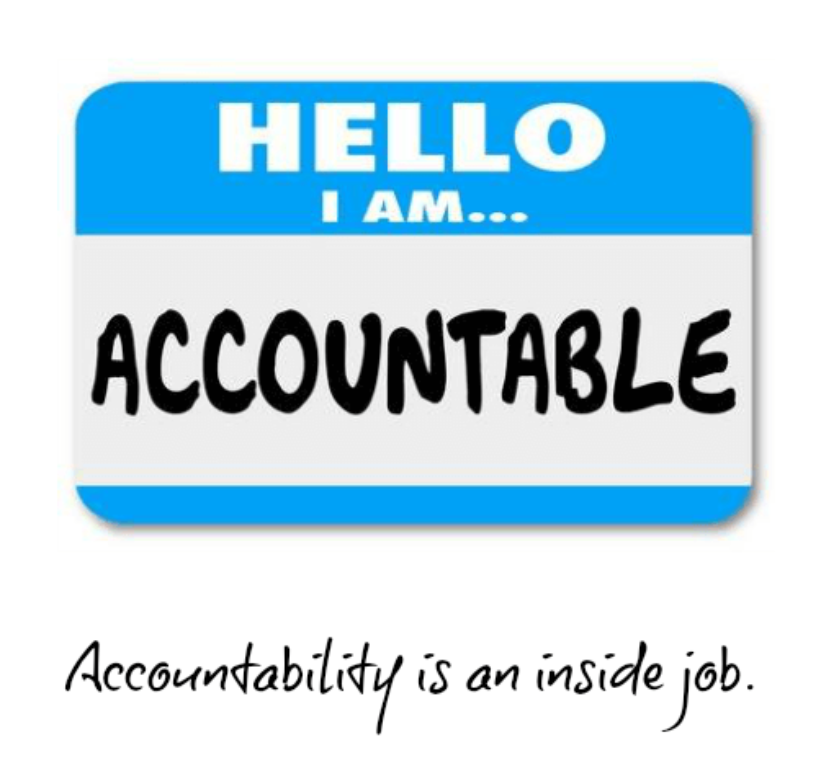It can take a lot to achieve a goal and sometimes we need support to hold ourselves accountable. There are plenty of resources that talk about apps and mindset, advising you to measure progress and manage your energy not your time, great I love all of those, but this is really focusing on practical accountability support.
If you’re already clear about why you want to achieve, a specific goal and have a good understanding of what the benefits of achieving it are, here is something that might help.
I’m focusing here on three areas: technology, internal tools that relate to self-discipline and motivation and finally, external accountability support. These are practical things you can do to help you keep your word to yourself. I’m a big fan of daily practices, and if you’re super keen to strengthen that muscle, perhaps a SIDCHA from Josh Spodek of Episode 29 of Tall Poppy. Many goals have an element that can be done daily to help you achieve what you set out to. Let’s look at how to hold you accountable to yourself. You’ve got your goal? Ok, let’s get into it.
Technology
I’m a fan of technology in service of humanity, when we use technology to help us achieve our goals, it serves us. That’s what it’s for. (See 10 Tools I use) Yet many people don’t use most of the smart features in our smartphones. Even our email and calendar programs tend to have reminder features, many of which are under-utilised.
Reminders are great ways to help you remember to do the thing, use tasks in Gmail, Outlook, or the ‘reminder’ feature in Evernote. I like the reminders as part of the iOS that induces timed or geotagging options that get triggered when you leave or arrive at a particular location, you get a notification to remind you to do the thing.
Many calendars have the option to alert you when you set it to. Use the settings to have it pop up or make a sound or send you an SMS or whatever you think is going to work for you. If you have a long-term goal I recommend changing things up every once in a while to prevent the alert becoming mental wallpaper and loosing its impact.
If you use an app that has notifications make sure you enable them to get the messages that remind you like my Calm app: “It’s time to meditate.”
You might have a project management app that uses alerts or notifications of some sort. Or if you’re a bit more tech savvy, use IFFT or Zapier to trigger an event that might resemble something that motivates you to do the thing. Use what works for you, try different things, be honest with yourself when it’s not working anymore and try a new approach.
Internal
When we’re super committed to a goal or specific accomplishment, self-discipline can be a powerful tool and even better if you can sustain it. When it wanes use the other two options, but to start with you may have a lot of internally generated motivation, tap into this to your heart’s content! This is where knowing yourself comes in handy. And knowing how well you can delay gratification.
Rewarding yourself with something you desire can be a good way to help your ability to self-motivate. That’s the ‘carrot’ side of the equation, for some the ‘stick’ approach is more useful, or a combination of both. Think of the old ‘swear jar’ that accumulates coins (back when we still used them) each time a curse word left your lips. It can be effective if you want to avoid swearing, but if you don’t care, not so much, it turns into a donation receptacle.
External
Inevitably you’ll run out of steam and come up against resistance. Don’t feel bad, it happens to the best of us. Use the resources available to you, being committed means doing what it takes, you got this.
Ask someone you trust, a friend or colleague that is committed to your success, to help keep you accountable. They can check in with you randomly, or at regular times or intervals. They can be your cheerleader, and partner with you in achieving your goal. Share with them what your end game is and how you plan to get there, how they can help and what works for you and doesn’t in motivating support. For me, I know that encouragement motivates me and guilt and directive language has the opposite effect.
Make a public declaration. This has been shown to increase your chances of achieving what you set out to. This is why when you pledge to support an online campaign or behaviour change initiative, it often coincides with an invitation to share it on social media, and of course to help spread the word. Telling people you’re going to do something triggers something in your brain that you’ve told the world and can generate internal motivation more than not telling anyone what you intend to achieve.
Buddy Up. Study buddy, gym buddy, there’s a reason these are prevalent terms, we motivate each other. When someone else has a similar goal, to buddy up can really help. When one of you is down, the other can pick you up. It can be a lot easier to motivate someone else than ourselves. The problem is when you both lack motivation, the buddy system’s limits come to light. But it’s still worthwhile, if you can find an accountability buddy, do it.
Get a coach. There are some things that are important enough to invest in professional support. Just like athletes use coaches to assist them in achieving their goals, a coach can draw on a range of tools to support you through the difficult times and help you celebrate, your achievements, reminding you of what you did to get there. When your friend forgets to ask if you’ve achieved that milestone or your app notification is consistently ignored, having a coach in your corner can be the thing that gets you across the line.
Try the other stuff first, you may well have more gumption and stamina that you think. And use the tools available to you, do the research, find your ‘why’, list the benefits, set yourself up to win, give yourself permission to succeed.
















Leave A Comment